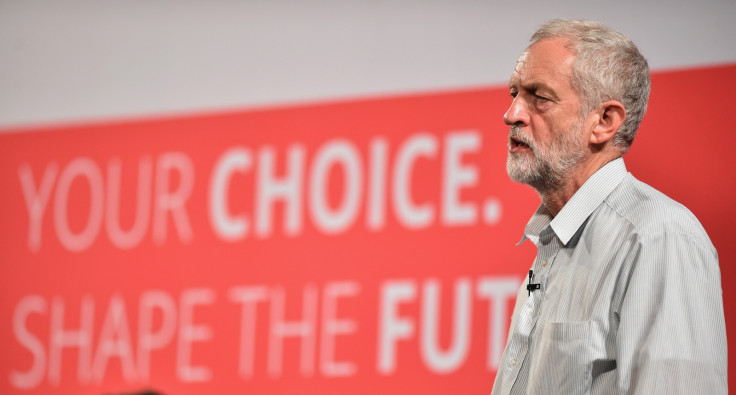John Mills: Jeremy Corbyn as Labour leader would not make the world a better place

The Labour Party is clearly going through a painful process of adjustment as it faces up to the scale of its defeat at the May 2015 general election.
Particularly evident is the tension between those who, on the one hand, believe that ideological purity is sacrosanct and those, on the other hand, who believe that without power, nothing worthwhile can be achieved.
Should the party give priority to reaching back to its more traditional roots or should it concentrate on making sure that it reaches out to the middle ground and the business community?
Labour also seems to have almost nothing to say at the moment about the economy despite the dismal record chalked up by the Conservatives
Does the Labour Party exist to promote an ideal or is its main function to gain power so that it can implement policies for the better?
Labour has a range of leadership candidates that provide a full spectrum of answers to these questions, with Jeremy Corbyn, by far the most left-wing contender now nosing into the lead.
If he becomes Labour's leader, the party will clearly be vacating the political centre, where elections are won and lost, leaving the Conservatives in a dominant position to carry out their policies untrammelled by an effective opposition.
This may make left-leaning Labour party members feel uncompromised by the threat of realpolitik, but it is hard to see that this is going to be good either for the country, or the future of the Labour Party – or for those whom Labour has always tried to represent against the vested interests of the rich and powerful, who have always been inclined to find the Conservatives more amenable to their concerns.
Nor are Labour's woes just ideological – important though these are. On a number of practical issues, where the Conservatives are potentially vulnerable, Labour seems to have little or nothing to say. Why, for example, has the Party got no policy towards reform of our relationship with the EU other than almost everyone – including all the more moderate leadership candidates – announcing that they will campaign to stay in the EU irrespective of what comes out of the current renegotiation?
This does not reflect the opinions of the electorate or large numbers of potential Labour voters. A recent TNS poll showed a huge majority of Labour-leaning voters supporting renegotiation of the conditions of Britain's EU membership by a margin of 55% for to 19% against.
Why is Labour not articulating concerns – felt by many who might still in the end vote for staying in – on the very high net costs of our EU membership, on key aspects of immigration, on where and how decisions are made, on accountability and democracy, and how the UK is going to fit into an EU where we are the only major state with our own currency?
Labour also seems to have almost nothing to say at the moment about the economy, despite the dismal record chalked up by the Conservatives, only partially relieved by the recent very modest recovery – which is unlikely to last – In the growth rate.
Average living standards are still well below what they were in the 2000s. The UK economy is almost incredibly unbalanced. The percentage of our national income which we re-invest each year is one of the lowest in the entire world – no doubt the key reason why we have almost no productivity growth.
We have deindustrialised to a point where we cannot pay our way. We have a huge balance of payments problem which means that we are now living at about 6% more than we are earning. Hardly surprisingly we are therefore running up debts at a completely unsustainable rate.
What growth we have is fed by a burst of consumer confidence based on ultra-low interest rates and a boom in the price of asset for those lucky enough to own them which cannot last. Why is Labour not attacking this miserable performance far more vigorously?
The reality is that with the Conservatives in power the UK badly needs an effective left-of-centre opposition to hold the government to account. The only way this can be done is for Labour to look as though it might well win the next general election.
The party has to have a credible leader and it has to be trusted to be able to do a reasonable job on the economy. The problem that Labour has at the moment is that it does not seem to be taking these requirements nearly as seriously as it should.
Some people in the party evidently feel happier out of power, without having to get involved in all the compromises and difficult decisions entailed by actually running the country. For those of us who think that Labour exists to try to make the world a better place and that we have to have a Labour government to make this possible, seeing the party in danger of being little more than a pressure group with no prospect of executive action is not where we want to be.
John Mills is founder of consumer products company JML and a major donor to the Labour Party. He runs his own blog, which can be found here.
© Copyright IBTimes 2025. All rights reserved.





















